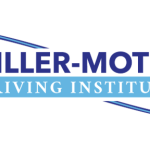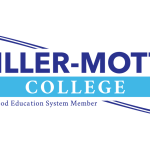Medical billing and coding plays a vital role in the healthcare system. Medical billing involves the comprehensive review of patient records to accurately communicate medical services to insurance providers for potential payment. It also involves creating and managing electronic claims to ensure reimbursement for medical services provided to patients. Medical billers and coders are liaisons between providers, hospitals, and insurance companies.
Medical billers and medical coders perform supportive, non-patient-facing roles in healthcare. They work behind the scenes to ensure physicians and insurance companies are paid accurately and on time. They also help patients to obtain reimbursements if discrepancies are found between insurance policies or guidelines and previous claims.
What Are Medical Billers and Coders?
Medical billers and coders, also called medical billing and coding specialists, are healthcare professionals who provide administrative healthcare services. A medical coder translates patient medical records into standardized codes for billing purposes. They properly document services provided and oversee the reimbursement process for physicians. Despite often being mentioned together, medical billers and medical coders can have separate roles.
Smaller companies may hire one person to function as a medical billing and coding specialist. Larger companies may choose to hire multiple medical billers and medical coders. Effective communication between medical billers, coders, and medical professionals is crucial to ensure accurate documentation and billing. Most training programs prepare students for both careers to give them the opportunity to apply for a single or a combined position upon completion.
Definition of Medical Coding
Medical coding is the process of assigning standardized codes to diagnoses, procedures, and services provided by healthcare professionals. These codes are essential for facilitating clear communication between healthcare providers, insurance companies, and government agencies, ensuring accurate and efficient billing and reimbursement.
Medical coders utilize various coding systems, including the International Classification of Diseases (ICD), Current Procedural Terminology (CPT), and Healthcare Common Procedure Coding System (HCPCS). By translating complex medical information into universal codes, medical coders play a crucial role in the healthcare industry, directly impacting healthcare providers’ financial and operational aspects.
Definition of Medical Billing
Medical billing is the process of submitting and following up on claims with health insurance companies to secure payment for medical services provided by healthcare professionals. This process involves reviewing patient records, determining the medical tests, diagnoses, and treatments received, and conveying this information to insurance providers and patients.
Medical billers ensure that bills are paid and that both providers and patients are clear about financial expectations. As a critical component of the healthcare revenue cycle, medical billing directly affects the financial stability of healthcare providers, making it an indispensable part of the healthcare system.
Are Medical Billers and Coders the Same?
Although they are related, medical billing and medical coding are two different processes.
Medical coding is the process of translating patient records into universal medical codes for billing purposes. Medical coders use standardized coding manuals such as:
- Current Procedural Terminology (CPT)
- International Classification of Diseases, Tenth Revision, Clinical Modification (ICD-10-CM)
- Healthcare Common Procedure Coding System (HCPCS) Levels 1 and 2
Medical coders use the above manuals to tell the story of a patient’s visit and treatment plan through medical code. This includes the date, doctor’s name, patient’s diagnosis, procedures ordered and performed by the physician, and the patient’s treatment plan. Translating this information into a common medical language allows clear communication between insurance companies, physicians, and patients.
Medical billing is the process of submitting claims to obtain payment for services rendered.
Medical billers are the liaison between patients, physicians (the healthcare provider), and insurance companies (the payer). They work to ensure healthcare providers are paid for services rendered and the payer pays for the agreed upon services. If the medical biller discovers services rendered fall outside of the payer’s policy, the patient is billed for those services.
Medical billers verify whether or not procedures performed are covered by a patient’s current policy level. This information is turned into a claim which is sent to the buyer, the patient, or both. This claim details the patient’s demographics, medical history, procedures performed, and explains why these procedures were necessary.
Medical billers must also verify whether the information is factually correct prior to submitting the claim. Once the claim is approved, the payer confirms the amount they agree to pay and returns the claim to the medical biller. The medical biller takes this amount or balance and sends it to the patient. Effective medical billing and coding allow healthcare providers to focus more on patient care, thereby enhancing the quality of services offered to patients.
Why Consider a Career in Medical Billing and Coding?
Medical billing and coding are great career options for those interested in non-patient-facing healthcare roles. Although they work behind the scenes, their efforts play vital roles in maintaining the stability of healthcare organizations.
Medical billers and coders stand at the forefront of the reimbursement and medical documentation processes. They ensure providers are compensated and reduce potential financial burdens on patients. This contributes to a patient’s overall experience by only involving them with billing issues when necessary.
Other perks of pursuing careers in medical billing and coding include:
Flexible Work Settings
Medical billers and coders can work in hospitals, doctor’s offices, for insurance companies, or through medical billing and coding agencies. Medical billers and coders can also find remote positions or in-person positions. Having such flexibility over how and where they work can help medical billers and coders create their ideal work-life balance.
A Set Work Schedule
Most medical billers and coders work Monday through Friday from 8 AM to 5 PM with an hour for lunch. Some may choose to work weekends while others may be required to clock overtime during peak periods. Overall, most medical billers and coders see little change in their daily schedules.
Quick Training
Training to become a medical billing and coding specialist can be completed in as little as 15 months at Miller-Motte. Our program lets students practice assigning diagnostic and procedural medical codes using CPT, ICD-10-CM, and HCPC Levels 1 and 2. Students can also gain familiarity with common insurance types, various insurance guidelines and policies, and more.
Opportunities for Career Advancement
As medical billers and coders gain more experience, they can advance into managerial or supervisory positions.
Skills Required for Medical Billing and Coding
Medical billing and coding professionals need a diverse set of skills to perform their jobs effectively. These skills include a strong knowledge of medical terminology and coding systems, which is essential for accurately translating medical records into standardized codes. Attention to detail and analytical skills are crucial for ensuring accuracy and compliance with healthcare regulations.
Organizational and time management skills help professionals manage large volumes of data and meet deadlines. Communication and interpersonal skills are important for interacting with healthcare providers, insurance companies, and patients. Proficiency with electronic health records and billing software is also necessary. Additionally, certification in medical billing and coding, such as CPC or CCA, is highly valued and often required.
Importance of Certification for Medical Billers and Coders
Certification is essential for medical billers and coders as it demonstrates their expertise and commitment to the field. Certification not only validates a professional’s skills and knowledge but also enhances their credibility and career advancement opportunities in the competitive healthcare industry.
Obtaining certification can significantly increase earning potential and job prospects. The most common certifications for medical billers and coders include Certified Professional Coder (CPC), Certified Coding Associate (CCA), and Certified Billing and Coding Specialist (CBCS). These certifications are offered by professional organizations such as the American Academy of Professional Coders (AAPC) and the American Health Information Management Association (AHIMA).
MMC’s Medical Billing and Coding Program
Our Medical Billing & Coding program was designed with industry standards in mind to better prepare students for medical biller and coder roles. For in-person students, this program uses hands-on learning to support knowledge gained through lectures.
Our Medical Billing & Coding program aims to prepare students for their coding certification exam. However, we do not guarantee students will obtain licensure. The coding examination is conducted by a third-party organization and is subject to change without prior notice to Miller-Motte.
- Our hybrid Medical Billing and Coding program is available through our Chattanooga, TN and Tulsa, OK campuses.
However, our online Medical Billing and Coding program can be completed in 15 months only through our Chattanooga campus.
Next Steps
Medical billing and medical coding are exciting career fields with various opportunities for growth and advancement. Medical coders ensure accurate documentation of services rendered while medical billers ensure physicians are accurately reimbursed for their work. Together, they optimize the revenue collection process, so providers can continue delivering quality care.
Ready to start training for a new career in Medical Billing and Coding? Call us today at (800) 705-9182 or submit this form to request more information.
Information within this blog is for general information purposes only. Miller-Motte does not assume or guarantee certification/licensures, specific job/career positions, income earning potential or salary expectations based on the programs offered at Miller-Motte. Career and program information statements in this blog do not guarantee that programs or other information mentioned are offered at Miller-Motte.




